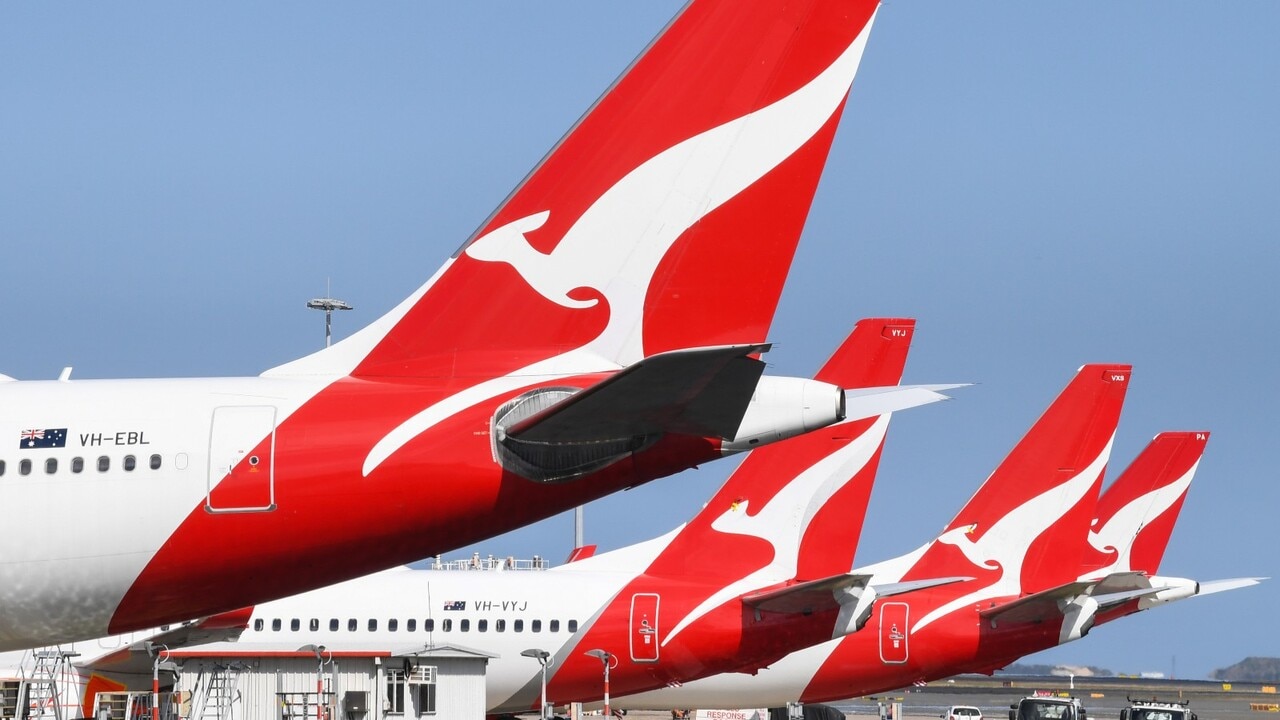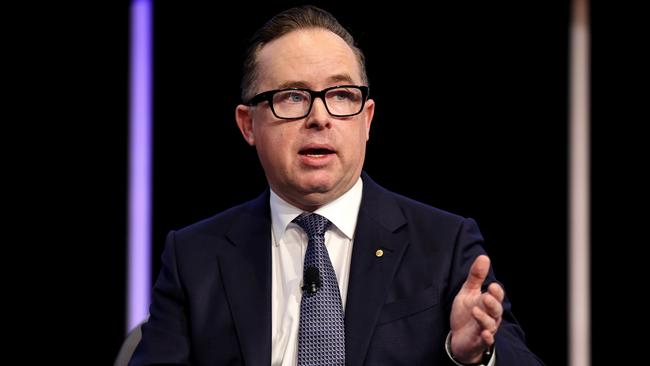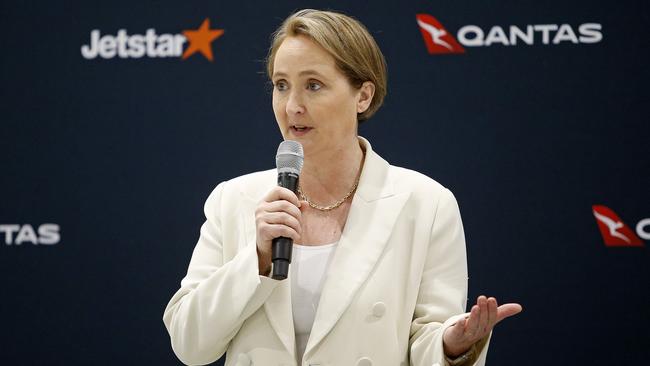Post-employment perks for Qantas directors and execs under fire by proxy advisory firm
Ex-Qantas chief Alan Joyce’s perks could earn a second strike against its remuneration report, after a proxy advisory firm weighed in and urged a ‘no’ vote against the chair and a director.

Business
Don't miss out on the headlines from Business. Followed categories will be added to My News.
An influential proxy advisory firm has broken ranks with similar bodies, and recommended Qantas shareholders again reject the airline’s executive remuneration report because of generous post-employment perks, including bonuses and free travel.
At the 2023 AGM a resounding 82.9 per cent of shareholders opposed the remuneration report, amounting to a first strike and triggering a major corporate governance review by Qantas.
Only 25 per cent of votes need to oppose the remuneration report a second time, to trigger a “spill resolution” potentially forcing all the directors to stand for re-election.
Institutional Shareholder Services (ISS), which advises about 30 per cent of the Qantas share register, also recommended “no” votes to the election of chairman John Mullen and re-election of director Tony Tyler.
Other proxy advisories – CGI Glass Lewis, Ownership Matters and the Australian Council of Superannuation Investors – have backed all resolutions being put to Qantas shareholders ahead of the AGM in Hobart on October 25.
In its objection to the remuneration report, ISS raised concerns about “problematic pay practices” particularly around the calculation of long-term incentives.

ISS head of Australia and New Zealand research Vasili Kolesnikoff said the LTI bonus structure guaranteed at least 50 per cent of the bonus being paid out to executives.
“The former CEO (Alan Joyce) is still getting big bonuses now, despite hundreds of millions in fines and customer damage and all the other issues,” Mr Kolesnikoff said.
Qantas’s annual report showed that in the 2024 financial year Mr Joyce was paid $3.4m in bonuses and salary after working for just two months.
At the end of the 2025 financial year he was in line for another $2.5m under the long-term incentive plan, despite him departing Qantas in September 2023.
There was also discontent with the “post-employment perk” for executives and directors of free air travel for a period reflecting their tenure.
In Mr Joyce’s case, it meant he could make multiple overseas and domestic trips a year with Qantas at no cost, while former directors were also entitled to free “post-service” travel.

“While Qantas asserts post-retirement benefits to non-executive directors in the form of free flights is consistent with global airlines, post-retirement benefits are materially inconsistent with good corporate governance standards in the Australian market,” the ISS report said.
The main reason for the recommendation shareholders vote against the election of Mr Mullen was “over-boarding” which was against ISS policy.
As well as chairing the Qantas board, Mr Mullen chaired Brambles and Treasury Wine Estates and was a director on the New York Stock Exchange-listed Brookfield Infrastructure Corporation.
However ISS acknowledged that his experience in the transport, infrastructure and logistics sectors would benefit the Qantas board.
Referring to Mr Tyler, the report said he had served on the Qantas board for six years, during which time the board had oversight of the illegal firing of 1700 workers and the ACCC legal action, among other failures of corporate governance.
ISS recommended the election of new director Nora Scheinkestel be supported, along with the participation of chief executive Vanessa Hudson in the long-term incentive plan.
Other advisory organisations were in favour of the remuneration report, finding the actions taken by the board to dock Mr Joyce of $9.26m in bonuses and to slash other executives’ short-term bonuses by a third, were satisfactory.
More Coverage
Originally published as Post-employment perks for Qantas directors and execs under fire by proxy advisory firm





